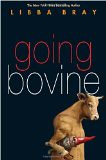 Code Name Verity by Elizabeth Wein.
Code Name Verity by Elizabeth Wein.So, I finally read this. FINALLY.
Good lord people. I know you said it was good, but HOLY MOLY it's amazing. I was worried because I knew some stuff going into it. Like, I didn't know any plot twists, but I knew that there were a lot of them. I knew the narrator wasn't totally reliable. I was worried that knowing this would somehow lessen the impact when I came across them in the narrative.
Nope.
Queenie is a British spy, caught behind enemy lines after her plane crashes into German-occupied France. She's in prison, regularly interrogated by the Gestapo. She is a coward and has caved. If she tells them everything she knows, she can survive a little while longer. If she tells them everything, hopefully she will only face the firing squad instead of being sent to Ravensbruck to be worked to death. If she is lucky.
In addition to her guilt at collaborating, there is the guilt over the death of the pilot of the plane and Queenie's best friend. Her confession tells their story of friendship and loyalty and ultimate disaster over French skies.
The fact that Queenie is not entirely reliable should be fairly obvious-- the text of the book is her written confession (and Gestapo notes). She includes things meant to poke fun at her interrogators and get them into trouble.
It is a very hard book to talk about without just spilling EVERYTHING about it.
It is exquisitely and precisely crafted, yes. But it is also a wonderful story of friendship and adventure. Lots of talks of planes and flying (Wein herself is a pilot and it shows). Parts of it are very, very grim. I mean, it takes place in a Gestapo prison, it's going to be very, very grim.
I love that a spy book for teens can also be this literary. I love that the historical fiction doesn't seem very olden timey, while still being accurate.
This has won a million awards so far, and it deserves them, and I think its one that teens will also enjoy.
I love, love, love this book and can't wait for Wein's next, Rose Under Fire, which is about a female pilot that does end up at Ravensbruck, and comes out in September.
ARC Provided by... the publisher, at ALA
Links to Amazon are an affiliate link. You can help support Biblio File by purchasing any item (not just the one linked to!) through these links. Read my full disclosure statement.




